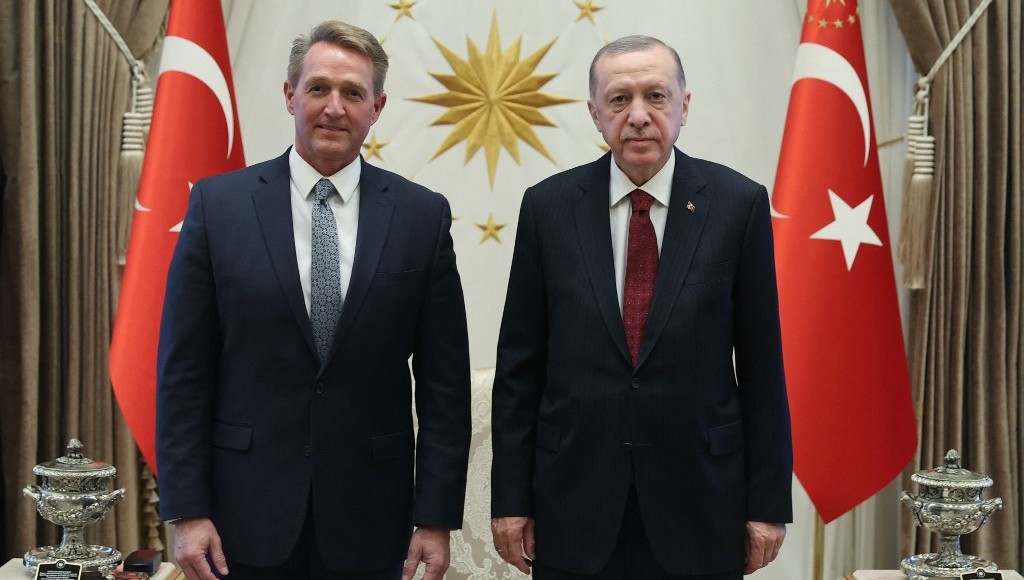Turkish President Recep Tayyip Erdoğan has said his door will be closed to US Ambassador Jeff Flake because of the envoy’s meeting last week with main opposition leader and presidential candidate Kemal Kılıçdaroğlu, local media reported on Monday.
Kılıçdaroğlu, the leader of the Republican People’s Party (CHP) and the joint presidential candidate of an opposition bloc of six parties known as the Nation Alliance, is Erdoğan’s main rival in Turkey’s upcoming presidential election slated for May 14.
Flake visited the CHP leader in Ankara on March 29 “as part of continuing conversations with Turkish political parties on issues of mutual interest,” the US Embassy said in a tweet.
#BüyükelçiFlake, ülkelerimizin ortak ilgili alanındaki konularda Türk siyasi partileriyle sürdürülen diyaloglar kapsamında bugün CHP Genel Başkanı @kilicdarogluk ile görüştü. Flake, depremlerdeki can kayıpları için taziyelerini sundu ve ABD’nin dayanışmasını ifade eti. pic.twitter.com/frAgjK5ii7
— U.S. Embassy Türkiye (@USEmbassyTurkey) March 29, 2023
According to Turkish media reports, Erdoğan criticized Flake during a speech on Sunday for meeting with his political rival.
“[This is] shameful. … You are an ambassador, and your interlocutor here is the president. … Our door is closed to him. You won’t see us again. Why? [It’s because] you need to know your place. You need to know your duties as an ambassador,” Erdoğan said, addressing Flake.
In the most explicitly anti-Western comment of his election campaign so far, Erdoğan also said his supporters should “teach the US a lesson” in the upcoming presidential and parliamentary elections.
Last month Interior Minister Süleyman Soylu also accused Flake of trying to “overthrow” the government by creating “strife” and told him to “keep his dirty hands off Turkey.”
The relationship between NATO allies Turkey and the US has been rocky since 2014, when Washington decided to ally against the Islamic State group with armed Kurdish groups in Syria that are viewed as terrorists by Ankara. Tensions have also risen in recent years due to a number of other issues, including Turkey’s acquisition of Russian-made S-400 air defense systems and its objections to Sweden’s NATO bid.



